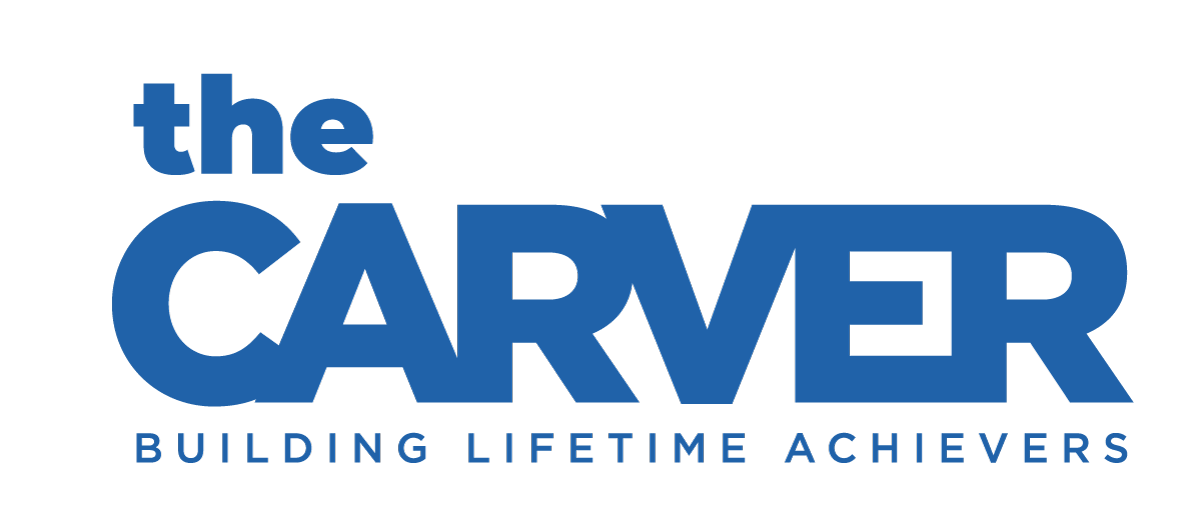Dominique Horah-Nanez, a Registered Nurse at Danbury Hospital, recently coached a group of Carver high school students in the Tech Center on the second floor of the Carver Community Center.
Like our workforce development program partner Norwalk Hospital, Danbury Hospital is a member of Nuvance Health.
Dominique is married to Tony Nanez who also has been volunteering his time with Carver scholars.
Dominique shared her advice and guidance about the field of nursing, how to balance work and family life, and how to be open to the possibility of returning to school later in life to acquire new skills as she did with nursing. She also emphasized the importance of having mentors and embracing the many other forms of support that Carver offers.
She explained that nursing is an attractive career to consider because of the occupation’s scheduling flexibility, especially if you are raising children, and because it will always be in high demand.
Dominique explained that the nursing career field has changed greatly through the decades. When nursing began it had very little to do with formal medical training and everything to do with your gender and willingness to do the job. In the early days of nursing, women learned medical skills from their mothers or other women in the same profession. Women were caretakers generations ago, so nursing was just an extension of what their roles at home were.
Then, Florence Nightingale, an English social reformer and statistician, founded modern nursing. She came to prominence while serving as a manager and trainer of nurses during the Crimean War, in which she organized care for wounded soldiers at Constantinople.
Today, the nursing profession requires extensive training programs and more diversified staff, and it enjoys a high level of prestige in the medical field.
Time has done a lot for many career paths, but the nursing field has seen a drastic change. Today, there are many nursing programs, specialties, degrees, and certifications for different types of nursing.
It’s no surprise that technology and new discoveries have changed jobs across virtually all industries, but it’s especially true for those that work in healthcare. Today, many of the medical advancements we take for granted make it possible for nurses to save countless lives, prioritizing patient care and comfort much more than they were able to before.
After becoming a nursing assistant or registered nurse, there is still a near-limitless potential for pursuing a career that suits everyone’s unique passions and interests. Nurses today can continue their studies and receive specialized certifications and degrees, many of them working in fields that didn’t even exist until recently, advancing their careers and increasing their long-term earning potential.




